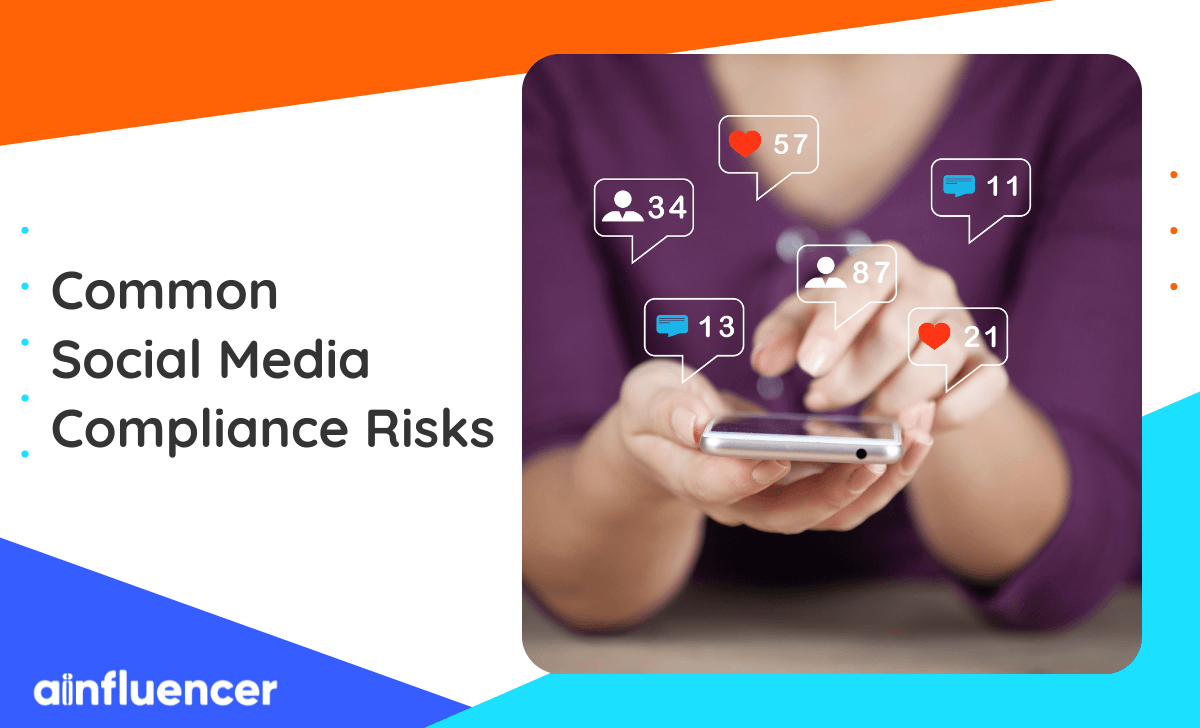Most organizations use social media and are aware of its benefits. However, few organizations understand how to use social media effectively, and even less understand how to structure risk and compliance management programs to control the risks associated with social media.
Social media risks are evolving quickly, and the risks associated with social media have broadened in scope. Unauthorized disclosures, cyber attacks, and the unintentional release of confidential information are just some of the risks that organizations face when using social media platforms.
Let`s go over some of the major social media compliance risks and how you can avoid them.
Ensuring data confidentiality
Confidentiality of data is paramount to social media compliance. The unauthorized sharing of confidential information can have legal, regulatory, and reputational implications.
For different industries, different types of information can be considered confidential. Sharing this information on social media is not only improper but oftentimes illegal.
For healthcare marketers, for example, this category includes photographs and videos in which a patient can be recognized. Just resharing a post without written clearance could compromise HIPAA compliance and can result in substantial fines.
Those in the healthcare industry must be familiar with the Health Insurance Portability and Accountability Act (HIPAA). It provides strict guidelines for enterprises’ usage of patient health data.
Another example of a highly regulated industry is the education industry. Educational institutions are obligated to follow strict confidentiality rules and protect the privacy of their students, who are often children. These laws are based on the Family Educational Rights and Privacy Act (FERPA). Each industry must be aware of employee communication risks and apply a reliable strategy to all communication channels.
Threats to data security and privacy
While the purposes of privacy and data security rules also vary by industry, they all have the same goal in mind. To begin with, they want to limit the number of people who can be contacted by marketers. Second, they define how marketers acquire and store data. Finally, they make certain that clients understand how their data is preserved and used.
Data privacy laws can vary not only by industry but often by location as well. However, the core concepts are the same. Online marketers should not send unsolicited messages. They must tell customers when they collect and store personal data. They must also ensure that personal data is stored in a secure and ethical manner.
When it comes to how advertisers utilize personal information, the GDPR is particularly strict. These rules also spell out what you should tell people while you’re gathering data. Cookies and other mechanisms are examples of this.
Compliance may appear difficult to attain with so many different laws and regulations to keep track of. Noncompliance, on the other hand, has far-reaching effects that cannot be overlooked. Non-compliance can result in costly and time-consuming lawsuits, ranging from high penalties to legal holds.
Data accessibility and archiving
In general, accessibility requirements aim to ensure that critical information is easily available upon request. Whether it’s an eDiscovery request or a subject access request, your company must be prepared to quickly respond.
HIPAA compliance, for example, requires hospitals, doctors, nurses, and other healthcare professionals to appropriately store sensitive patient information. Companies that handle personal information, such as banks and credit bureaus, must also follow rigorous archiving regulations. They must safeguard sensitive data so that only authorized persons have access to it.
It’s critical to know what rules apply to your sector if social media compliance is part of your marketing strategy. Implement a social media archiving system to make compliance easy. This will ensure that all content is properly saved, securely kept, and easily accessible.
Keep in mind that social media compliance is a continuous effort. You might need to implement new rules and regulations as your company grows or laws change.
Claims, endorsements, and testimonials
Those working in regulated businesses are especially prone to concerns with social media compliance. All social marketers, however, must adhere to marketing and advertising guidelines, provided by The Food and Drug Administration (FDA) or the Federal Trade Commission (FTC), for example.
The Food and Drug Administration, in particular, monitors claims made about food, beverages, and supplements. The Federal Trade Commission routinely examines testimonials and endorsements. In the social realm, the term “influencer” is frequently used to describe this.
Any claim that makes a product seem better than it is can lead to legal action. Any endorsement that hasn’t been clearly disclosed can also lead to problems.
Wrapping up
Social media compliance is a vital part of any marketing program. Failing to comply with rules and regulations can result in significant penalties.
Don’t make the mistake of thinking that these are just minor inconveniences. Compliance violations can be very expensive.
Put together a social media compliance program. This will let you avoid social media compliance risks while turning your social presence into a powerful lead generation tool.









